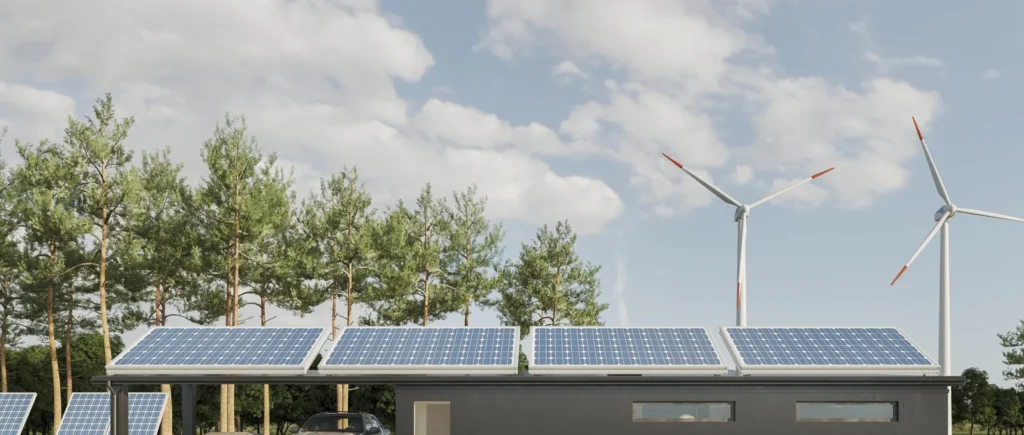As climate concerns continue to rise, communities worldwide are looking for solutions that reduce environmental harm while supporting growth and progress. Traditional energy sources, such as coal, oil, and natural gas, have fueled development for generations, but at the cost of pollution and a finite supply. Solar power presents a different path, one that relies on the most abundant natural resource available—the sun. By turning sunlight into usable electricity, solar energy offers a renewable alternative that addresses both environmental and economic needs. It reduces greenhouse gas emissions, limits reliance on fossil fuels, and contributes to healthier ecosystems. Families, businesses, and governments are increasingly recognizing that clean power is no longer just an option but a necessity. Solar energy provides a foundation for sustainability, offering long-term solutions that go beyond temporary fixes. Its role in shaping a greener future makes it one of the most critical technologies driving global change today.
Building sustainability for tomorrow
- Reducing emissions and environmental impact
One of the most significant reasons solar power is central to a greener future is its ability to reduce harmful emissions. Fossil fuel plants remain one of the most important contributors to air pollution and greenhouse gas emissions, which drive climate change and compromise public health. Solar panels, by contrast, generate electricity without burning fuel, releasing virtually no carbon dioxide or other pollutants during operation. This clean process directly lowers the carbon footprint of households and businesses, creating a measurable difference in local and global environmental quality. The adoption of solar on a broader scale would drastically cut emissions, helping nations meet their climate goals and protect future generations. Companies such as North Valley Solar Power, near Concord, illustrate how renewable solutions can be applied at both residential and commercial levels, demonstrating that clean energy is accessible and practical. The transition away from fossil fuels toward solar power represents not only progress but also responsibility in addressing environmental challenges.
- Supporting energy independence
Solar power also supports a greener future by giving families, businesses, and communities greater control over their energy supply. Traditional energy markets are tied to global fuel costs, political instability, and infrastructure vulnerabilities, which create uncertainty for consumers. Solar installations generate electricity on-site, reducing dependence on centralized grids and imported fuels. When paired with storage systems, solar energy provides a steady supply of power even during outages or peak demand. This independence is not only practical but also sustainable, as it reduces the need for expanding polluting infrastructure. Cities and communities that invest in solar become more resilient, better equipped to handle crises, and less reliant on systems that strain the environment. The shift toward decentralized, renewable energy production creates stability for consumers while contributing to environmental goals. By promoting independence and reducing reliance on fossil fuel imports, solar power aligns individual security with global sustainability.
- Driving economic growth and green jobs
A greener future depends not only on reducing pollution but also on building economies that thrive without harming the environment. Solar power plays a crucial role in this transition by generating new job opportunities and stimulating local economies. From manufacturing and installation to maintenance and research, the solar industry supports a diverse range of employment opportunities. These jobs are rooted in sustainable practices, ensuring that economic growth is aligned with environmental responsibility. Businesses that adopt solar also benefit financially through reduced energy costs, which can be reinvested into expansion and innovation. This economic ripple effect strengthens communities, making them more resilient and better equipped for the future. As demand for renewable energy grows, the solar sector continues to expand, offering both stability and opportunity. By connecting environmental progress with economic benefits, solar power proves that sustainability and prosperity are not opposites but partners in shaping a better future.
- Encouraging community-wide sustainability
Solar energy has the unique ability to inspire communities to adopt more sustainable practices as a whole. When households, businesses, and public facilities install solar systems, they set visible examples of environmental responsibility. This often encourages neighbors, schools, and local organizations to follow suit, creating a ripple effect of adoption. Communities that embrace solar power reduce strain on their grids, lower collective emissions, and increase resilience against disruptions. Municipal projects, such as solar-powered schools or street lighting, demonstrate how renewable technology can be integrated seamlessly into daily life while reducing costs. These community-wide efforts create stronger bonds among residents, united by the shared goal of sustainability. By shifting toward cleaner energy, towns and cities not only improve their quality of life but also prepare for long-term resilience. Solar power thus becomes a catalyst for collective progress, demonstrating that individual decisions can have a significant environmental impact.
Read More: https://acubi.us/electrical-inspection/
Solar power stands at the center of the movement toward a greener future because it provides clean energy, supports independence, fuels economic growth, and strengthens communities. Its ability to reduce harmful emissions makes it an essential tool in combating climate change, while its capacity to empower individuals and cities ensures resilience in uncertain times. By creating sustainable jobs and fostering collective responsibility, solar connects environmental progress with economic stability. The technology is reliable, scalable, and increasingly accessible, making it one of the most practical paths forward. As adoption continues to grow, solar energy will remain a driving force in reshaping how society views and uses power. The move toward a greener future is not just about innovation, but also about a commitment to lasting change, and solar power embodies both. By embracing this clean energy source, families, businesses, and communities ensure a healthier planet and a sustainable legacy for generations to come.



